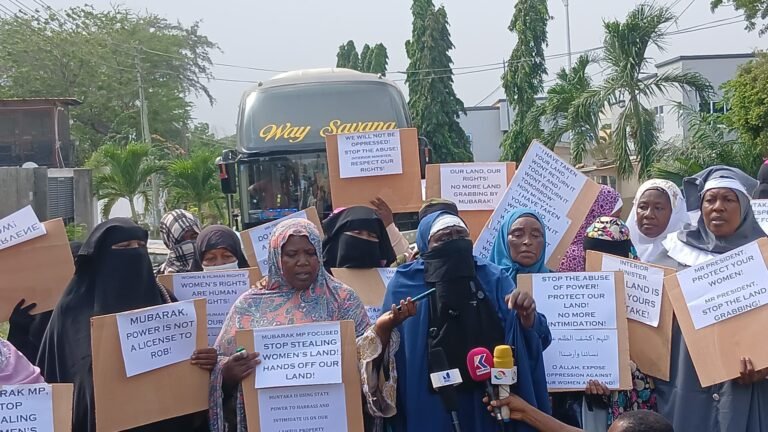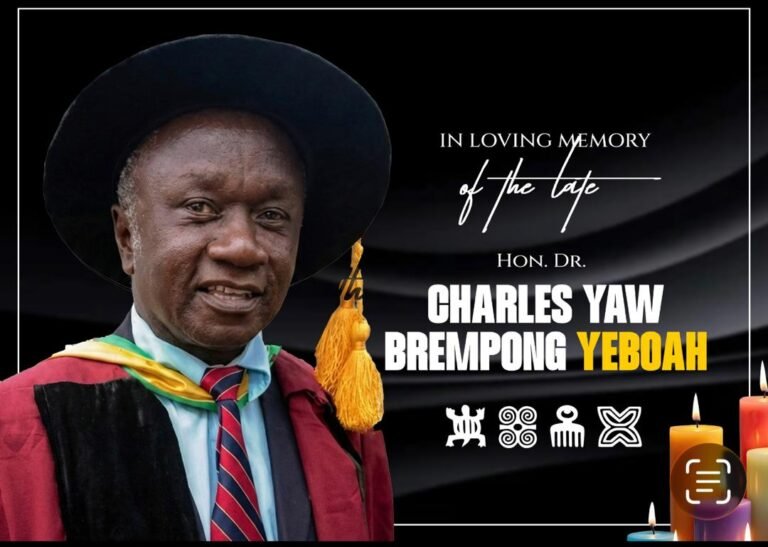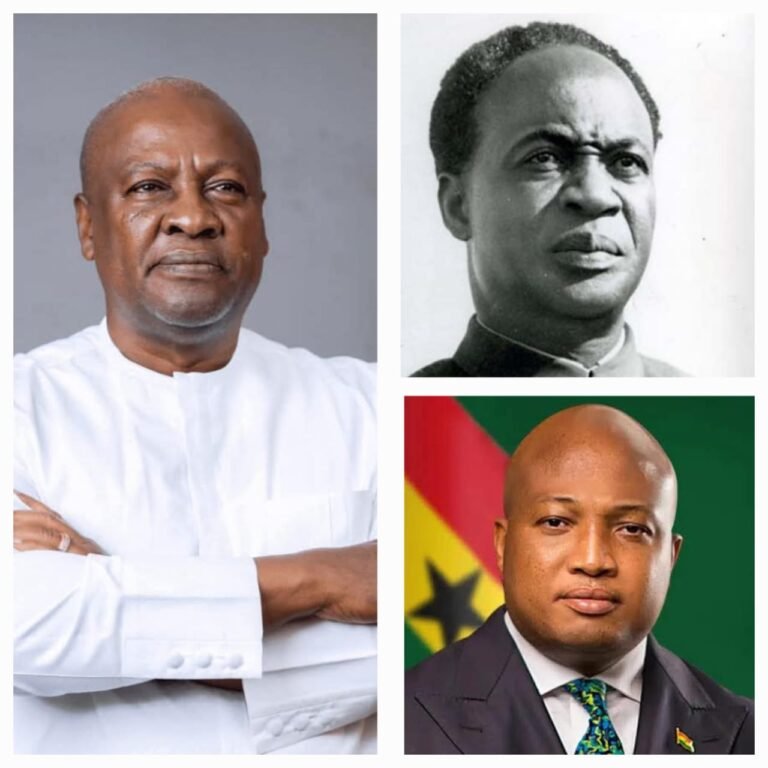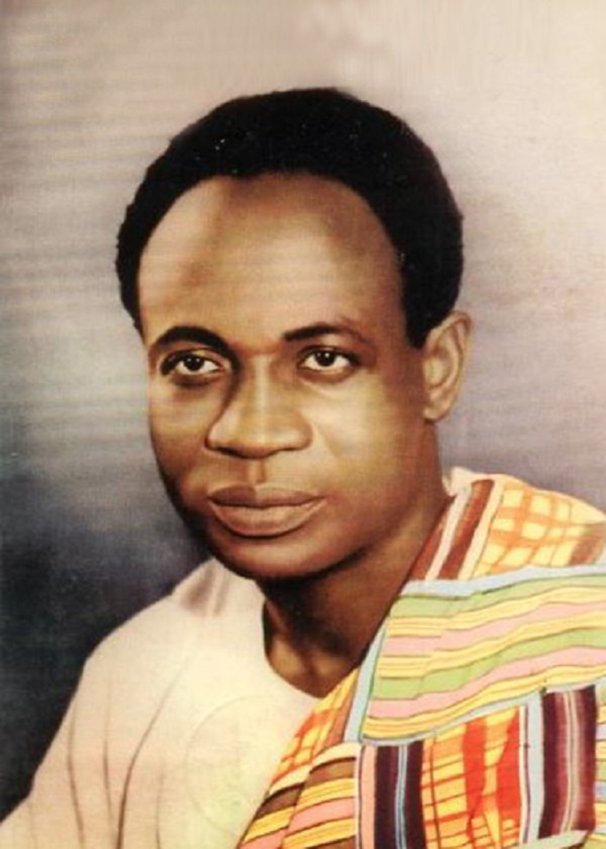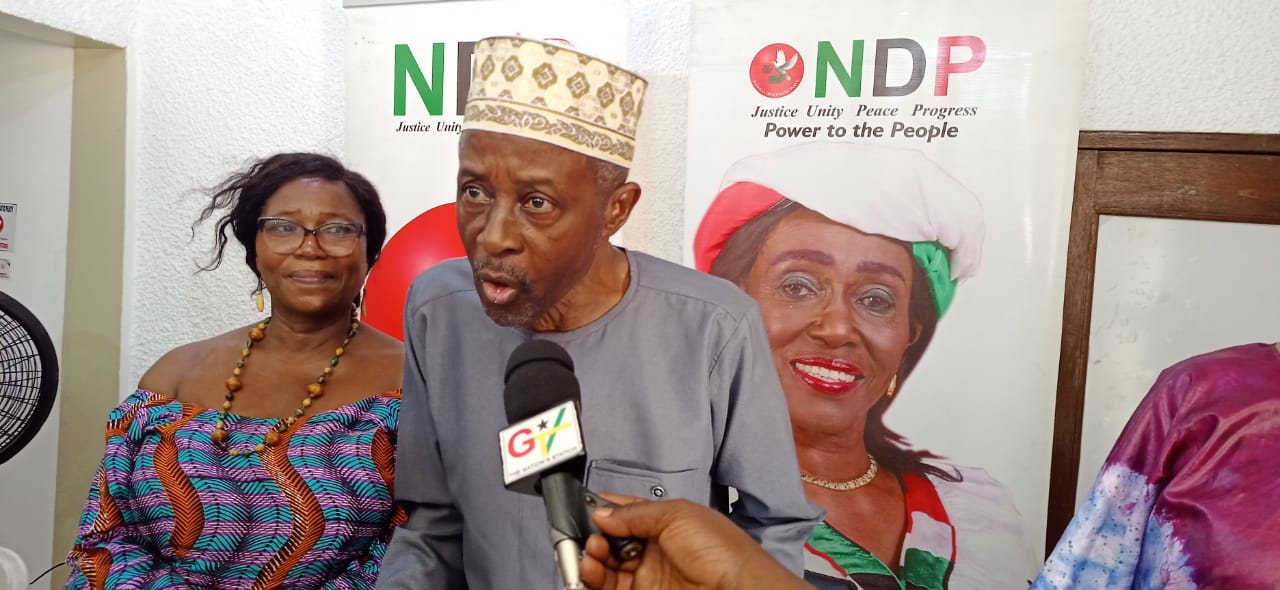
Alhaji Mohammed Frimpong, NDP Secretary General , addresses the press
The Secretary-General of the National Democratic Party (NDP), Alhaji Mohammed Frimpong, has called for a swift transition towards a fundamental governance policy that promotes inclusivity and participatory leadership.
Speaking to journalists during a press conference, dubbed “Inclusive and Participatory Leadership for National Development”, at the party’s head office in Kokomlemle yesterday, Alhaji Frimpong emphasised the importance of inviting the nation, especially the media and civil society organizations (CSOs), to embrace this paradigm shift.
According to him, adopting such a governance approach is crucial for ensuring that citizens are actively involved in decision-making processes concerning governance and development.
He noted that by fostering inclusivity and participation, the NDP aims to empower the populace, enabling them to have a voice in shaping the future of the nation.
He highlighted the role of the media and CSOs as vital partners in promoting transparency, accountability and democratic principles.
He stressed the need for collaboration between the government, media and civil society to realize the objectives of inclusive governance.
Pin-hole watch
The NDP Secretary General suggested that to eliminate corruption, Organized Labour should play a representative role in the nation, and keep a mandatory pin-hole watch over the administrative and financial machinery of their establishments.
“It does not make sense to seek better pay while, at their watch, there are countless financial infractions. The notion of winner takes all by the Executive should be defused first by the election of MMDCEs, which the Nana Addo government acceded to, but for a supposed disagreement from the NDC minority over the form. This rather stifled the deserving participation of the people as the primary arm of government,” he said.
He questioned why the people’s representatives in the Legislature should be the ones to stifle the democratic participation of the people who elected them.
He said to further its exercise of fighting corruption, the Special Prosecutor in recent times had asked to be granted prosecutorial powers.
“One may ask what has become of the provision of Tribunals in the 1992 Constitution in which a trial by jury provided for participation of the people in criminal trials?
“Systematically, our own elected legislators have conspired to stifle inclusion and participation of the people in governance, leaving governance very opaque to the detriment of development,” he claimed.
Prioritise inclusivity
He noted that as the 2024 election season approaches, political discourse typically revolves around party manifestoes and infrastructure projects. However, Alhaji Frimpong challenged this conventional approach, advocating a fundamental shift towards inclusivity and participatory governance.
He cautioned against the tendency of political parties to isolate themselves behind walls of rhetoric, focusing solely on shallow manifestoes and infrastructure development.
Instead, he emphasised the need for parties to prioritise inclusivity and active citizen participation in governance as the most effective means of safeguarding public funds and fostering national development.
He suggested that areas such as infrastructure, agriculture, health, employment, and the economy could be better addressed through collaboration among the National Development Planning Commission (NDPC), Civil Society Organizations (CSOs), and other think tanks, facilitated by legislative mechanisms or specialized agencies.
He stressed that true leadership inspires citizens to embrace noble pursuits for the collective wellbeing and livelihood. He, therefore, urged all stakeholders, regardless of political affiliation, to unite behind this transformative vision for the nation’s progress.


